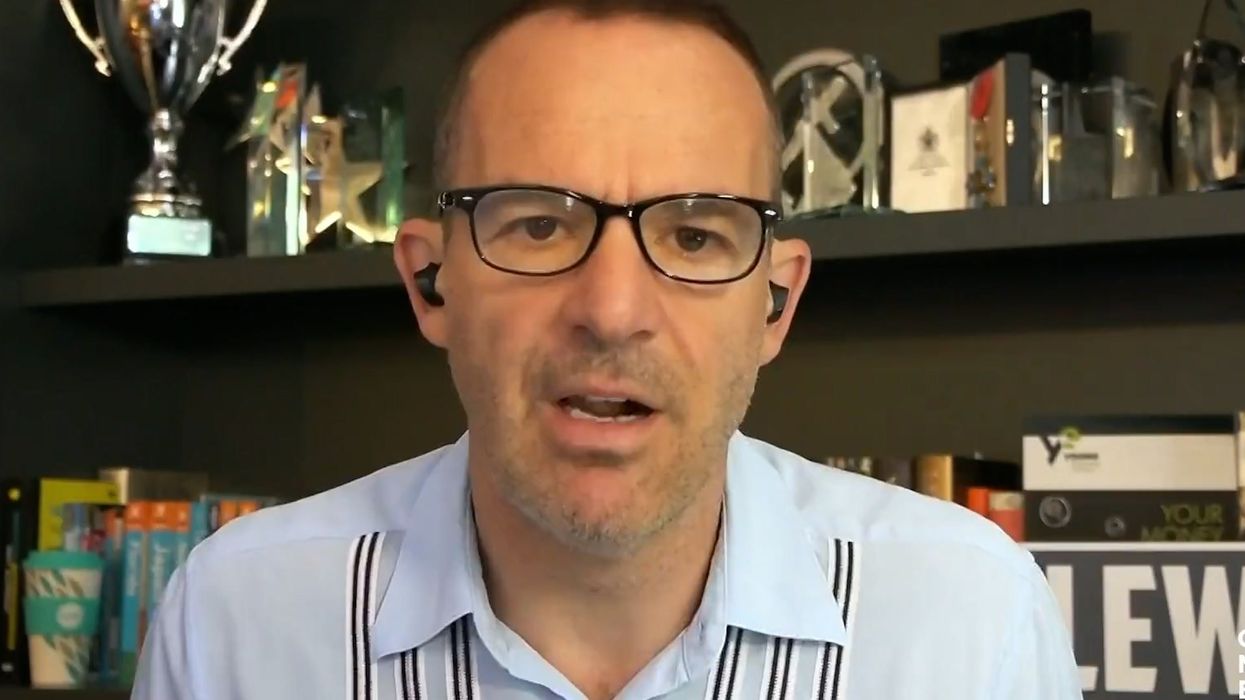Related video: Martin Lewis urges women to check HMRC letter as they could be owed thousands
Popular second-hand platforms such as Vinted and eBay, and room rental company Airbnb, will now be sharing transaction data on certain users, as part of new HMRC measures which will also see individuals making a significant profit on these sites expected to pay tax on sales.
While it’s making headlines this week (as the regulations came into force on 1 January), the measures aren’t so ‘new’, as they came about in July 2020 from the Organisation for Economic Co-operation and Development or OECD – of which the UK is a member.
These regulations were then put into UK law last year, and OECD rules state companies won’t have to share information about their users or customers if they’re making fewer than 30 transactions or less than €2,000 (£1,735) a year.
In a statement, HMRC said: “These new rules will support our work to help online sellers get their tax right first time. They will also help us detect any deliberate non-compliance, ensuring a level playing field for all taxpayers.”
Although, according to Vinted’s chief executive Adam Jay, many of the second-hand site users won’t be affected by this change.
“It’s actually quite a small proportion of users of our platform who will trigger this threshold where we need to provide information.
“It’s only those people who are making a profit from selling second-hand items that might be eligible for tax and then it’s about their own personal tax situation when tax would ultimately be due to HMRC,” he told the BBC.
Even though it appears many of us won’t have to cough up if we’re selling things online, people are still pretty angry about the measures on Twitter/X, calling for a greater focus on taxing wealthier individuals:
HMRC\xe2\x80\x99s new \xe2\x80\x9cside hustle\xe2\x80\x9d tax on second hand goods sold on Vinted & eBay is an appalling development. Not just because items are sold at a loss by vendors, but that these apps are the antidote to ecologically destructive \xe2\x80\x9cfast fashion\xe2\x80\x9d brands. HMRC puts VAT receipts above all else— (@)
The new HMRC tax on 'side hustles' is just a stab at poor people.\n\nEmily selling her clothes on Vinted or John selling his lawnmower on eBay is somehow an issue for HMRC, but their mates in the government dodging millions in tax is acceptable.— (@)
So you\xe2\x80\x99re that skint you have to sell your old stuff to buy new stuff and the HMRC wants to tax you on the sale of something you\xe2\x80\x99ve already paid tax on that you will be selling for less than you paid?\n\nSurely taxing millionaires would be more profitable than Sharon\xe2\x80\x99s used tops?— (@)
So I\xe2\x80\x99m using my income which I\xe2\x80\x99ve already been taxed on, to buy an item which I\xe2\x80\x99ve paid VAT on already, and then selling that item because everything is so fucking expensive I need some more income, and you want more tax on that? UK is HELLLLLLLL get me outta here— (@)
Although others have pointed out that you’re unlikely to make a profit on a decades old jumper:
While reselling sites will be required to share information about the income of sellers on their platform from January 2025, individuals may only have until 31 January if they earned more than £1,000 from online side hustles during the 2022/23 tax year, as that’s when tax returns are due.
For previous tax years, people can make a voluntary disclosure to HMRC.
As an HMRC information sheet on selling goods online explains: “If you regularly sell goods or services through an online marketplace you could be classed as a ‘trader’.
“And if you earn more than £1,000 before deducting expenses through your trading, you will need to pay income tax on this.”
Thankfully, HMRC has an online checker which helps individuals determine whether they need to let the taxman know about additional income – good to know.
As Emma Rawson, a tax expert at the Association of Taxation Technicians, told the BBC’s Today programme: “Don't wait for that letter to come through, or for HMRC to contact you.
“It's always better if you think there may be tax for you to pay to declare that upfront as there may be penalties involved if not."
The Independent has approached HMRC for comment.
Sign up to our free Indy100 weekly newsletter
Have your say in our news democracy. Click the upvote icon at the top of the page to help raise this article through the indy100 rankings.














